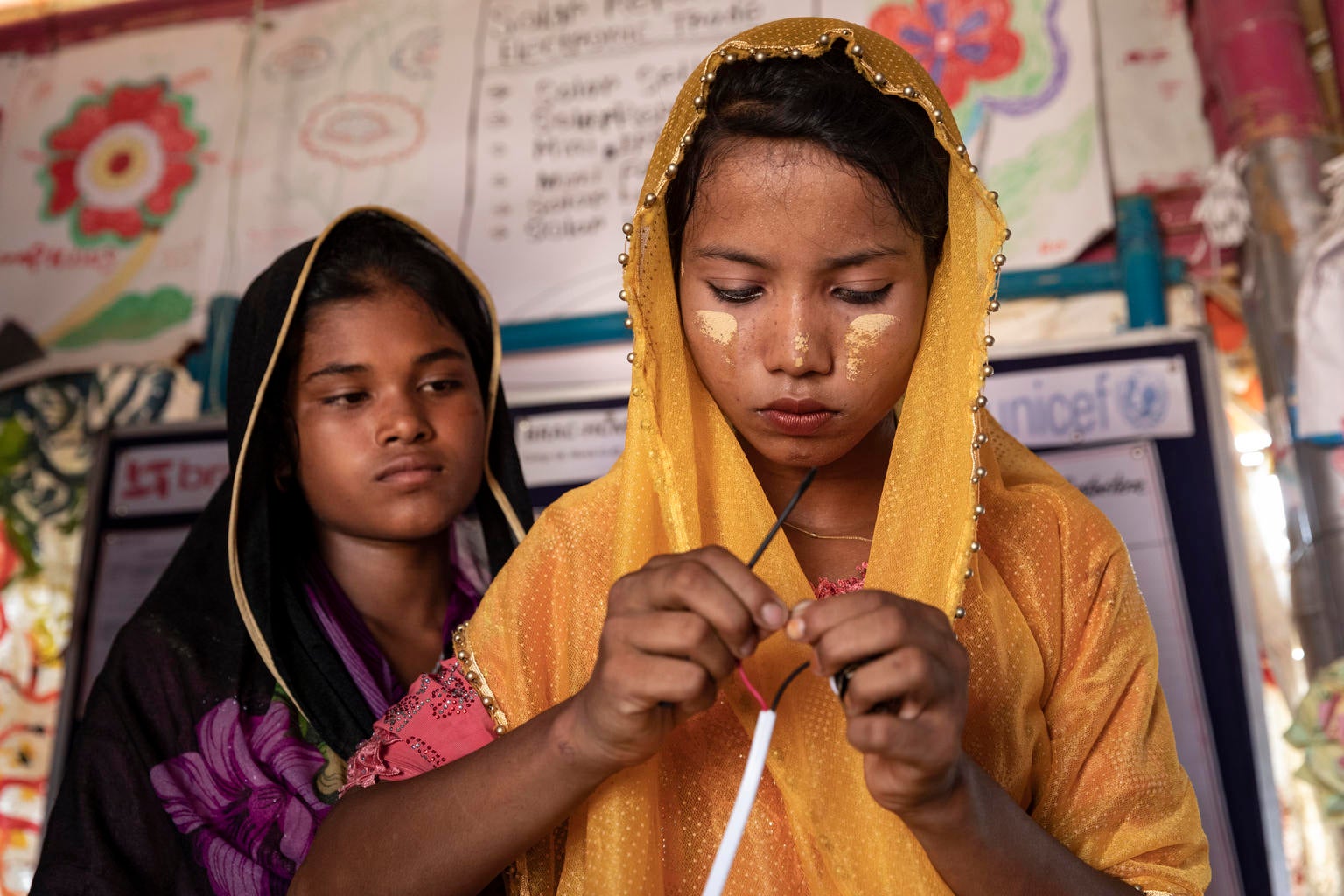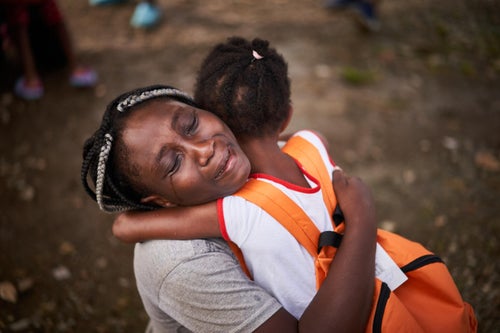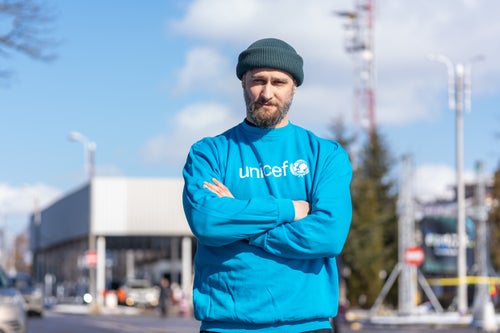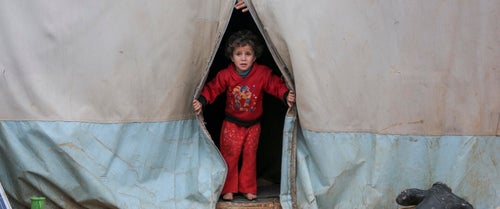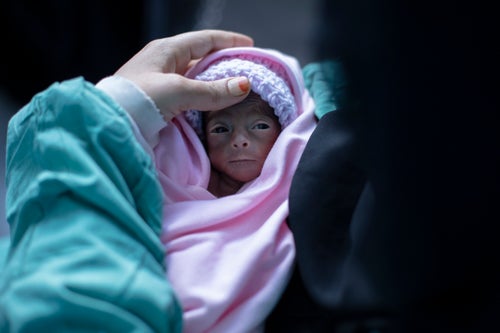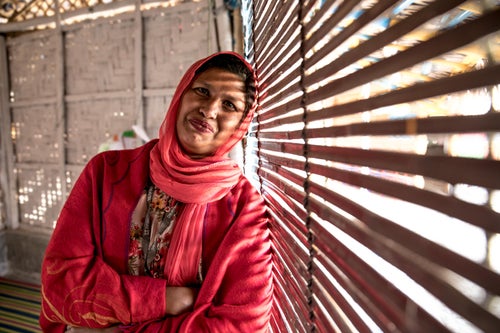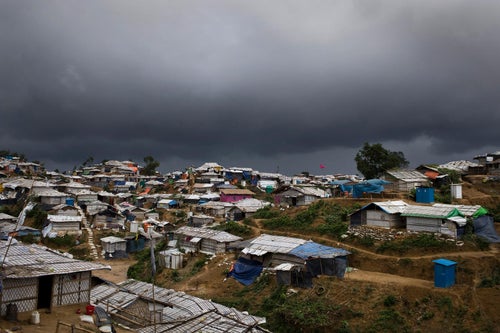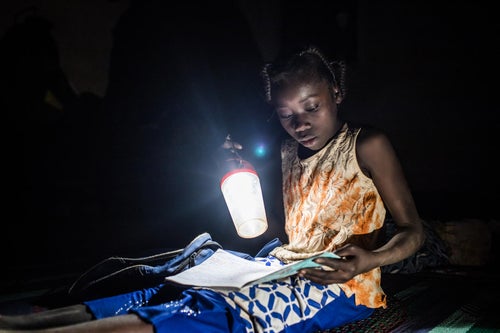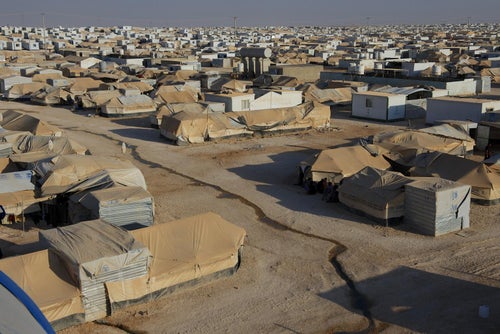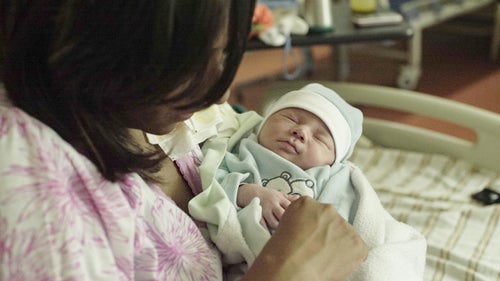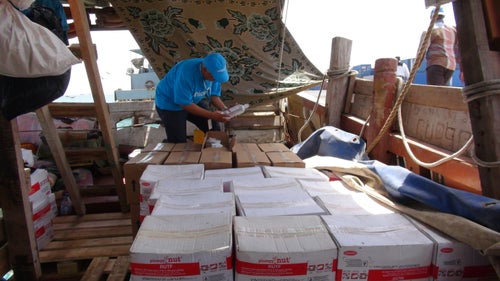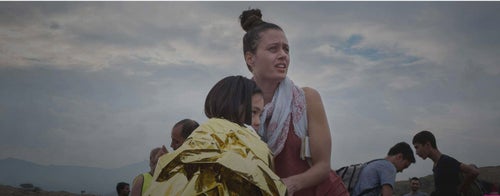The Chair of UNICEF Australia, Ann Sherry AO, has just returned from visiting the Rohingya refugee camps in Cox’s Bazar. She had two words to describe the teenage girls she met there: sassy and optimistic.
It’s been over two years since violence in Myanmar saw over 745,000 Rohingya refugees flee to Bangladesh, adding to the number already living in the area.
The sprawling Cox’s Bazar settlements are effectively the world’s largest refugee camp, home to almost a million people, with over half under the age of 18. They are entirely reliant on aid agencies for their survival.
“The living conditions are pretty tough,” says Ann.
“Once you get in to it, when you’re walking down between houses you realise there’s about 10cm between the paper-thin tarp walls of one house and the next.”
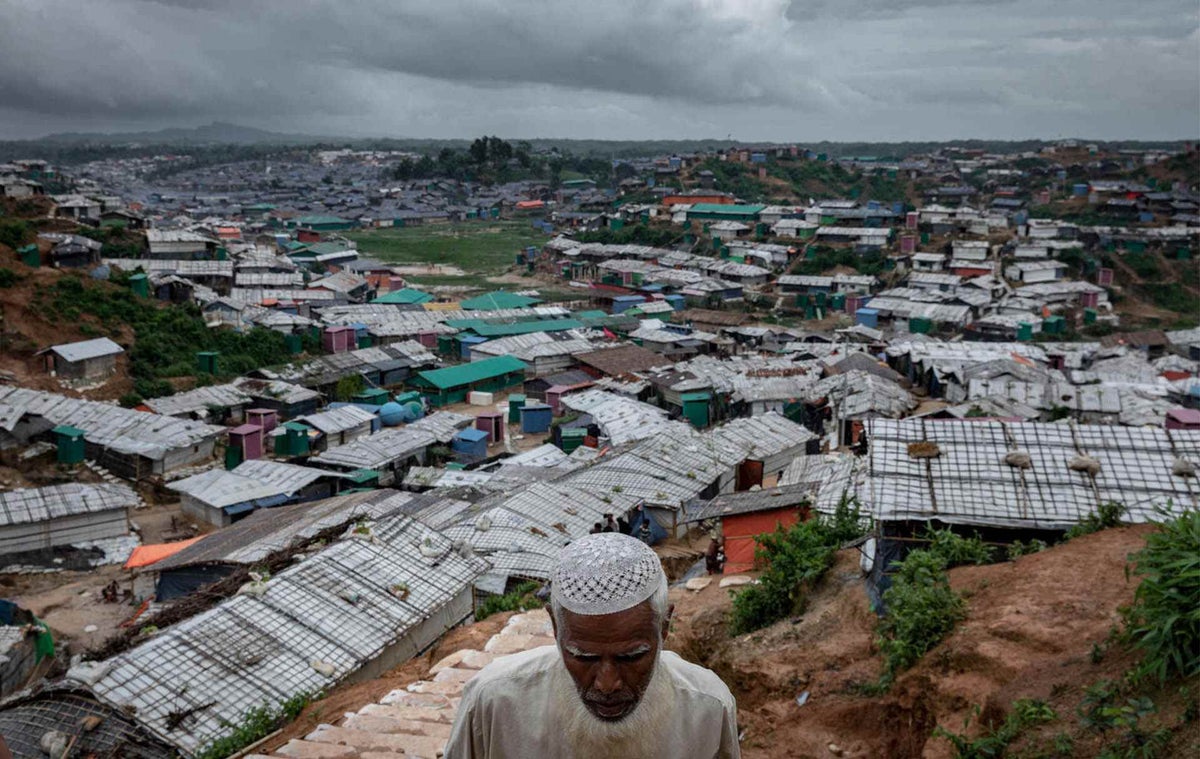
Life is hard, but the people living here have nowhere else to go.
Bangladesh, the country they fled to, has shown immense generosity in hosting such a large refugee population, however this has placed considerable stress on communities already living in the area. Bangladesh is reluctant for the refugees to stay in Cox’s Bazar long-term and will not allow them to live outside the camps or engage in paid work in the host community.
However, it’s still not safe for them to return to Myanmar where they are at risk of torture and violence.
Even if they could go back safely, they are not recognised as citizens - they are stateless. This means they are not permitted to access healthcare, many jobs, or formal education.
For many of the refugee children in the UNICEF-supported learning centres, this is the first time they have been able to go to school, and they are the first in their family to do so.
Visiting UNICEF programs in the camps is what gave Ann hope.
“They are so proud to show off what they know. They went up to the blackboard and wrote their name - things their parents can’t do, and these kids are five or six-years-old.”
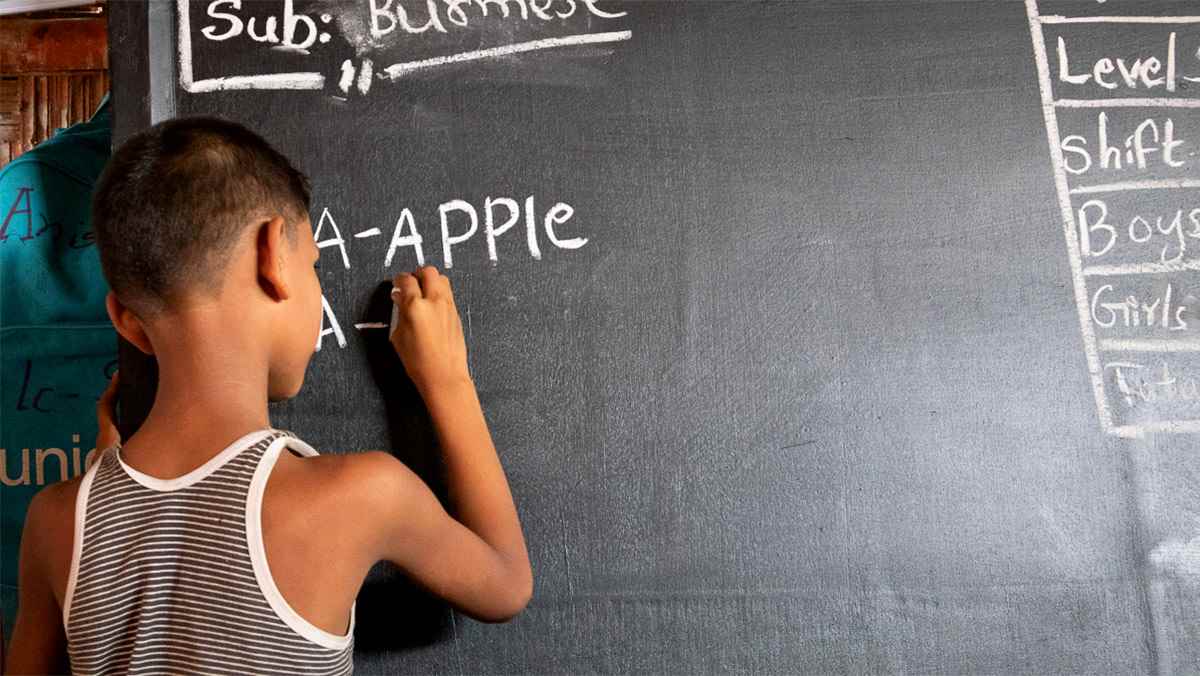
By June 2019, UNICEF and partners had ensured access to learning for 192,000 children aged 4 to 14, enrolled in 2,167 learning centres.
For many, their UNICEF supplied backpack is the only possession they own, their families having fled their homes with just the clothes they were wearing.
“I think that’s where you see the incredible, tangible impact of UNICEF’s work,” says Ann.
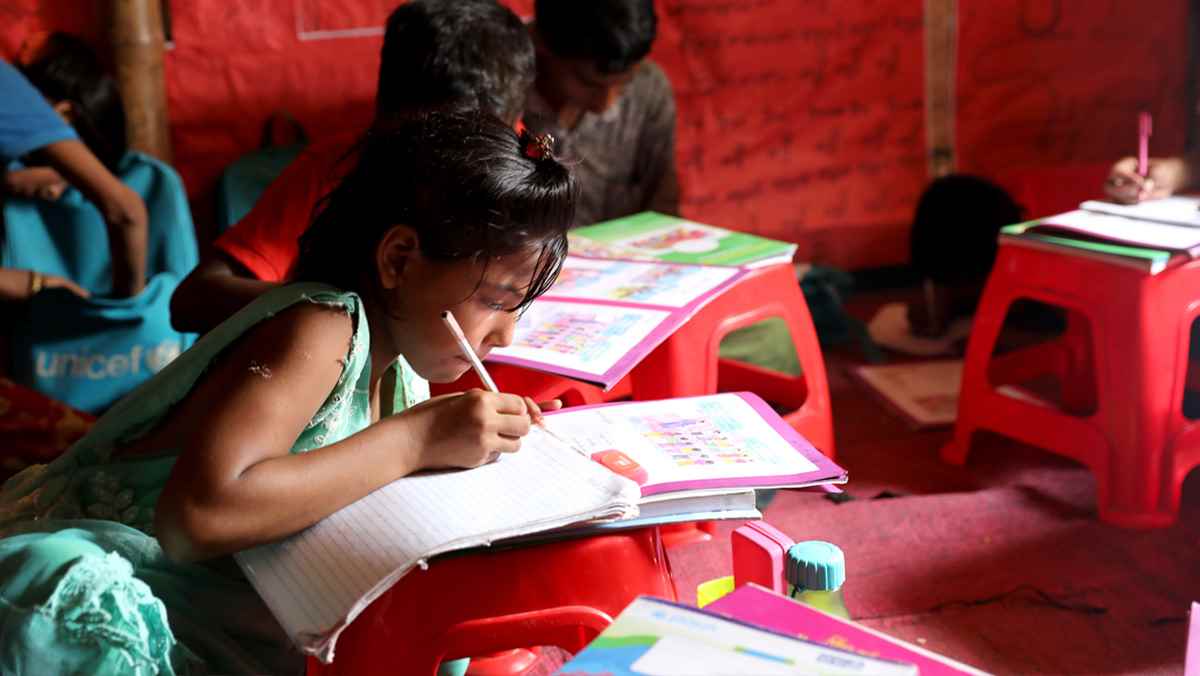
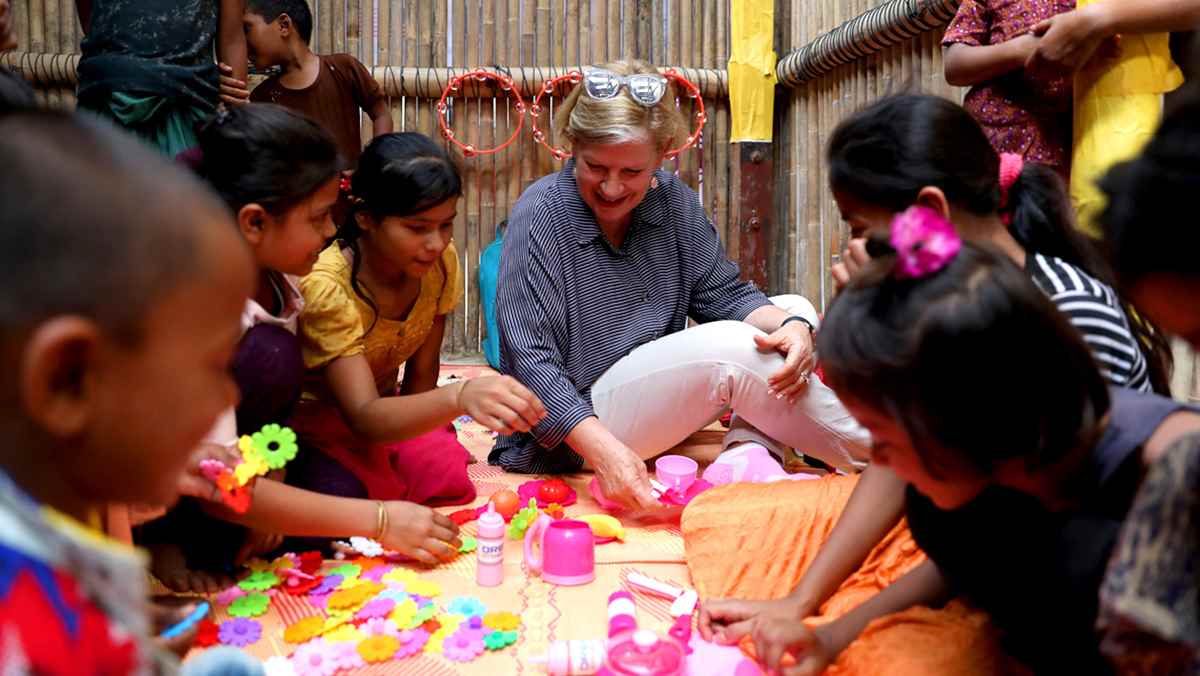
Adolescents are being left out
Despite the progress for young children, many adolescents are being left out. An estimated 97 per cent of those aged 15 to 18 years are not enrolled in any type of learning facility.
There is a sense of frustration among the teenagers who have so few opportunities available to them. “One young man said to me: ‘We want to do the things that we see everyone else doing, not to feel as though we have no options,” says Ann.
It’s something many of us take for granted in Australia: of course, we’ll go to school and, of course, there will always be schools. Our education and the skills we learn will open doors to the futures we choose. But for the refugee children growing up in Cox’s Bazar, there’s no choice, there’s no opportunities.
So many of life’s doors are closed to them because of who they are and where they were born.
Many parents are also concerned the longer their children are deprived of education, the greater the risk that they will be exposed to exploitation and abuse.
One teenager, Abdul, 14, told UNICEF staff: “people in the camps are always trying to sell [methamphetamine] to me. They try to convince me that if I sell drugs, I can make money and buy more things for my family.”
To help prevent this UNICEF and partners have developed around 100 Adolescent Clubs and established a network of youth centres that offer psychosocial support and classes in literacy, numeracy, and vocational training, with the aim to reach an estimated 123,000 young people.
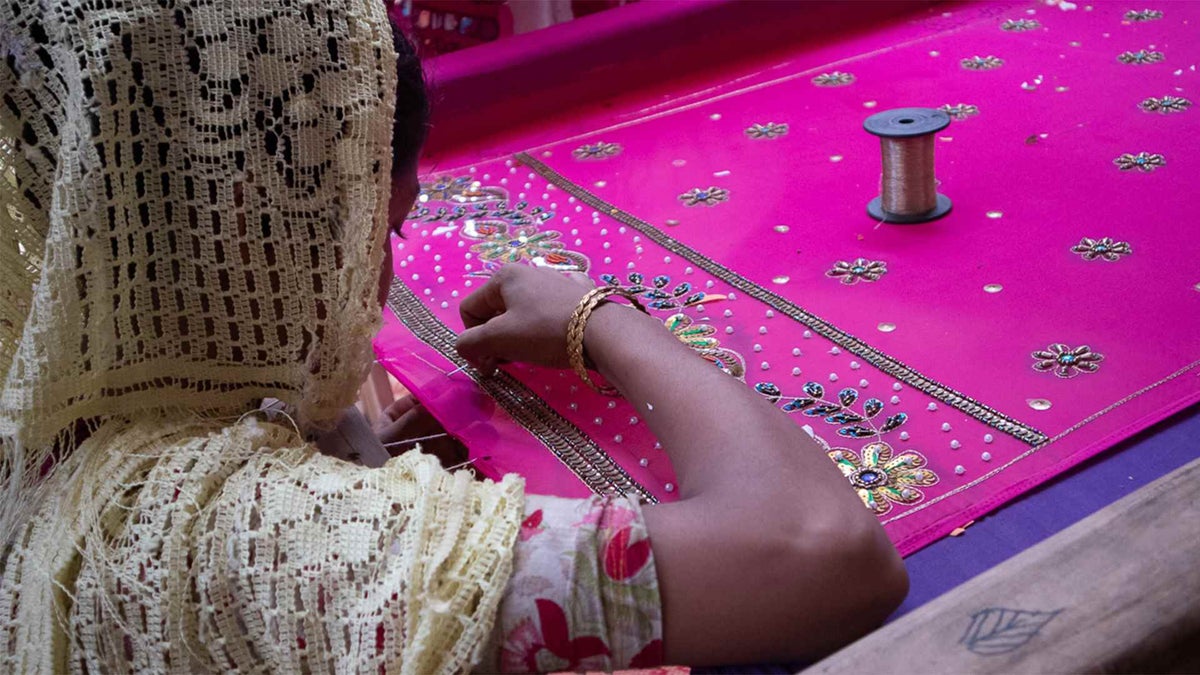
Childhood marriage is increasingly an issue
Adolescent girls growing up in the camps face even more challenges. Childhood marriage is increasingly an issue.
Many of the girls Ann met said this wasn’t the future they wanted. “The girls in particular were pretty clear about what they don’t want. They’re looking for things that give them a sense of opportunity and purpose – and I do think UNICEF delivers that.”
UNICEF and its partners run a range of technical skills trainings for adolescent girls, including embroidery, sewing and even solar panel electrical repair workshops, teaching skills that may enable them to earn an income.
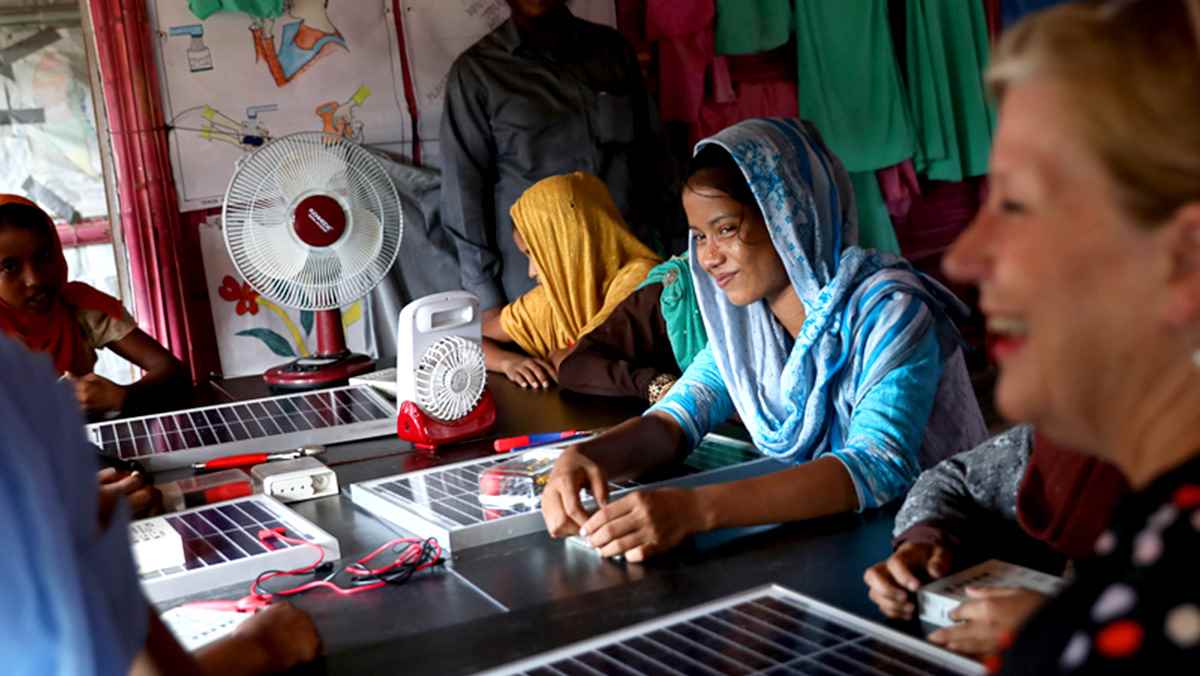
The training also provides a safe space for the girls to meet, share problems and help each other. “We like that we can go together. We can gossip and be together and learn new things,” said one of the girls. Many of the girls are hoping to set up their own businesses with the skills they learn.
“They are a particular group of young women who are pretty sassy,” says Ann.
“They’re looking to create change for themselves, almost against the odds. They’ve seen things no one should see […] and they’re living in a community that has a traditional view of the role of women, and they’re pushing against that, which takes courage.”
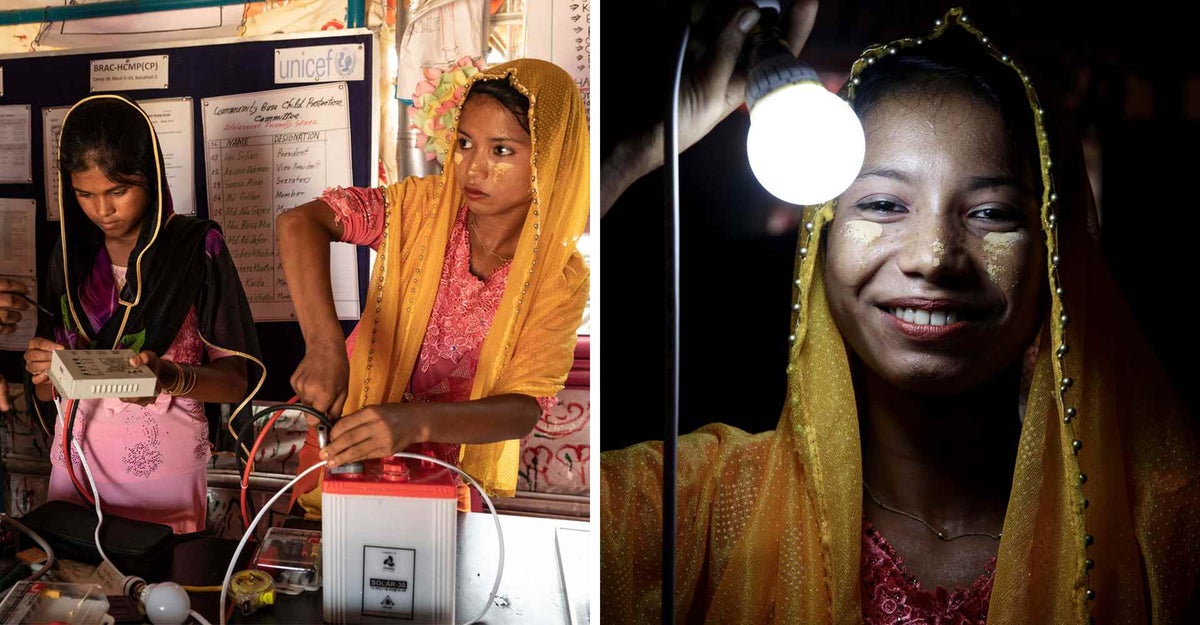
The girls in the solar panel classes say the program is particularly important for them because the camp is dangerous at night, especially for girls. The solar lights they build make it safer for them to move between houses, or to the communal bathroom at night.
While the girls are now getting an education – their new-found freedom is precarious. Without the support of their families and the wider community, they will not be allowed to attend the centres.
UNICEF worked with community, religious leaders and families to ensure support for the program. “At the beginning we had lots of problems with our families, but the staff here have had lots of parent meetings to change their minds,” says one girl.
The girls also have some of their own ideas about how to ensure continued support: they want to set up an exhibition of their work to show their parents what they can make, so their families understand how valuable their new skills are.
They also want to help expand the program to more girls, so they can have the same opportunities.
These children and young people are the beginning of a new generation of Rohingya. A generation who are dreaming of a community that includes them, where they can do anything.
“Hope comes in many ways in the Rohingya camp,” says Ann. “I saw some pretty dire conditions, but I was also inspired by the young people’s hope and resilience.”
Related articles
Stay up-to-date on UNICEF's work in Australia and around the world



